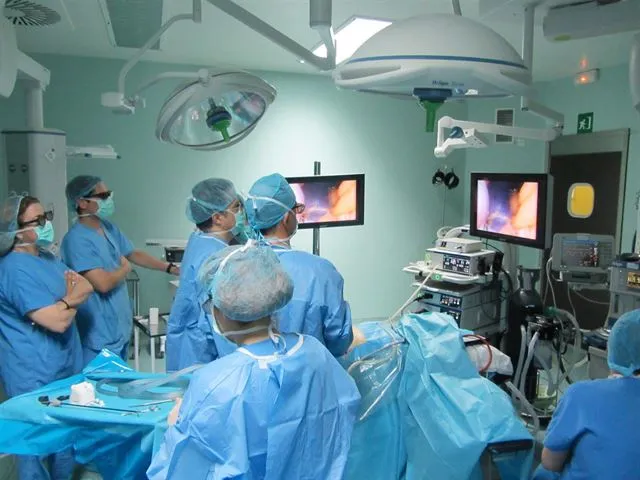Studies have shown that bariatric surgery can lead to the remission of type 2 diabetes mellitus (DM2), but this beneficial effect cannot be explained solely by weight loss.Numerous studies have shown that gastric bypass can lead to great improvement of type 2 diabetes in obese patients, supporting the idea that surgery could be used for the treatment of this disease.
In a new work published in 'American Journal of Pathology', the authors analyzed gastric bypass in a DMT2 mouse model and confirmed that derivation surgery improves glucose tolerance and insulin sensitivity, curiously, inConjunction with changes in intestinal microorganisms, suggesting a possible role of the intestinal microbiota in diabetes.
"Our research showed that the" bypass "surgery duodeno-ieyuna (DJB) can be applied to cure diabetes both of genetic (mutation) and environmentalMain, Xiang Gao, from the University of Nankín, in China.
"We have found that DJB surgery induced alterations of the intestinal microbiota, which can be the key reason for the remission of diabetes after bariatric surgery. Our data indicates that suppressing inflammation is the result, not the cause, of reversalof diabetes in these genetically modified mice, "he says.
The investigation was carried out in a DM2 mouse model that mimics the key symptoms, such as insulin resistance, high lipid levels, metabolic inflammation and obesity.These rodents house genetic mutation in the neurotrophic factor derived from the brain (BDNF) that leads to BDNF deficiency.BDNF is a family member of neurotrophic growth factors and is a key regulator of both brain and metabolic balance.
"Our findings suggest that BDNF -induced diabetes can be reversed by DJB surgery in mice, with potential for the treatment of diabetes in humans," says Gao.He and his team saw that bypass surgery reversed the metabolic abnormalities indicative of diabetes without changing BDNF expression directly.
Improvements in glucose tolerance and insulin sensitivity
Glucose tolerance and insulin sensitivity greatly improved and there was less accumulation of fat in the liver and white adipose tissue.Insulin sensitivity reached normal levels within two weeks following surgery and lasted for at least eight weeks.Six weeks after 'bypass' surgery, oral glucose tolerance in treated mice was significantly lower than in diabetic mice that had been subjected to simulated operation and was similar to the levels observed in unre treated controls.
The examination of the composition of bacteria and other microorganisms in the intestine of rodents with mutation before and after Bypass surgery and in the control group showed a decrease in pathogenic bacteria and an increase in the beneficial microflora that coincided withThe beginning of a better glycemia control."More studies on the mechanism of intestinal microbiota alterations are needed after Bypass surgery to explain how different microbiota families can regulate the metabolism of nutrients in the host," Gao points out.
Inflammation, especially in white adipose tissue and liver, is believed to play an important role in obesity and type 2 diabetes. Eight weeks after derivation surgery, it isThey produced significant reductions in inflammatory indicators in the liver and fat tissue, although anti-inflammatory post-surgical effects occurred after improving insulin sensitivity."These results indicate that the relief of inflammation was not the direct cause of the improvement in the sensitivity to insulin that resulted from bypass surgery," concludes Gao.
Source: Infosalus.com


